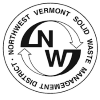Food scraps are parts of food items that are typically discarded rather than eaten. They include food that was not finished or leftovers that went bad. Any type of food can become scraps. In 2020, Vermont State Law banned all food scraps from the landfill.
Most types of food can be donated. The Bill Emerson Good Samaritan Food Donation Act provides protection from liability for the donation of food that is ‘apparently wholesome’ without visible quality issues. Check below for information on how to donate your food for human and animal consumption. However, if food looks or smells bad, is moldy, or has damaged packaging do not donate it – compost it!

